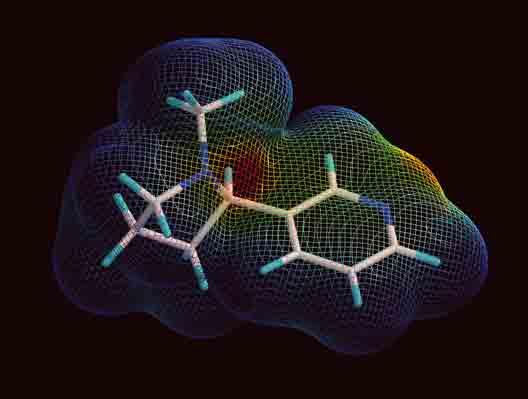In recent years, researchers have discovered that nicotine can alleviate symptoms of diseases such as Alzheimer's disease and ulcerative colitis, but until now the mode of action of nicotine in these conditions has remained unclear. A new study may shed light on the phenomenon
By: Lisa Melton, Scientific American

Nicotine has undergone an image overhaul, at least from a medical point of view. In recent years, researchers have discovered that nicotine can alleviate symptoms of diseases such as Alzheimer's disease and ulcerative colitis. But until now the mode of action of nicotine in these conditions remains unclear. Now, with the help of research on sepsis, Luis Olua from the North Shore University Hospital in Manhasset, New York, has been able to clarify the biochemical pathways in which nicotine works. This information may lead to the development of more effective anti-inflammatory drugs.
Sepsis, the deadliest inflammatory condition, results from a bacterial infection in the bloodstream. Hemophilia is ranked as the third leading cause of death in the Western world, and it causes about 10% of deaths in the US every year. The infection itself causes some of the damage, but the main reason for the severity of the disease is the violent reaction of the patients' own immune systems. Macrophages (swallowing cells) produce huge amounts of pro-inflammatory proteins (cytokines). This excessive immune response causes tissue destruction, and the patient dies, in the end, because of problems in the functioning of the cardiovascular system and because of multisystem failure.
The impressive discovery made by Olua and his colleagues is that nicotine can stop the inflammatory overreaction, so much so that it is able to cure sepsis in mice. This is a powerful activity compared to other conventional anti-inflammatory treatments. "Nicotine affects the body's own anti-inflammatory mechanisms," Ulloa explained at a Novartis Foundation conference held in London in February 2006. "That's the beauty of our approach. Through nicotine we mimic the physiological mechanisms that were selected in the evolutionary selection process to regulate the immune system."
And in more detail, nicotine mimics the actions of the substance acetylcholine, which is considered the Cinderella of the nerve messengers (neurotransmitters). For many years acetylcholine was ignored, but recently it has risen to star status because it links the nervous system with the immune system. With the help of acetylcholine, the nervous system controls the flames of inflammation that pop up in our body frequently. Acetylcholine receptors are found on nerve endings but also on cells of the immune system. Nicotine binds to these receptors and activates them, thereby enabling dialogue between the brain and the immune system.
"This is an unusual finding," says Voter de Jonge from the Medical Academic Center in Amsterdam, who studies how macrophages respond to acetylcholine. "It is known that smoking apparently helps people suffering from ulcerative colitis, so there were already hints that nicotine might alleviate the severity of inflammatory diseases, but so far no one has been able to explain how," he notes.
Now Olua's group may have provided an explanation for the positive effect of nicotine on patients with various diseases from schizophrenia, Alzheimer's, Parkinson's, Tourette's syndrome to ulcerative colitis.
Olua showed in laboratory experiments that nicotine binds to certain receptors found on macrophages and prevents them from secreting inflammatory cytokines. This suppression of cell activity is highly effective. The researchers even identified the exact subtype of the receptor to which acetylcholine binds to suppress cytokine production in macrophages, the alpha-7 acetylcholine receptor.
But the disadvantage of nicotine as a drug is its toxicity. Beyond its addictive nature, it can cause cardiovascular problems and contribute to the development of cancer. "No one believes that nicotine should be used to treat inflammation," Ulloa says. "We are interested in designing unique compounds that will affect this particular receptor in order to take advantage of nicotine's advantage as an anti-inflammatory agent and in the process avoid the toxicity associated with its use."
"There is no doubt that this is one of the most important stories in immunology in recent years," says Mitchell Fink, an intensive care specialist at the University of Pittsburgh. It is possible that a selective nicotine-like compound could become a promising drug not only for the treatment of sepsis but also for many chronic conditions, including heart disease, cancer and diabetes. The task now is to find the best substitute for nicotine, and it is likely to be found in Uloa's petri dishes.

2 תגובות
You don't need any substitute. You need to smoke and preferably cigarettes with less toxins, like manito, spirit, etc.
Who translated the article? What is a goat? Doesn't he have a name?